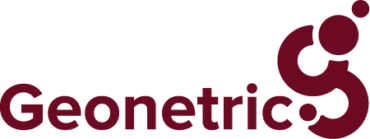Artificial intelligence (AI) is everywhere—it touches your everyday life in ways you don’t even think about. Public awareness and opinions are still forming on how to use it and how comfortable people feel with it.
One thing is certain: AI will continue to seep into your personal and professional life. There are many AI content-creation tools, such as ChatGPT, Google Bard, and Bing Chat, to name a few. We recommend you start planning if, when and how your healthcare organization will allow it to affect your website’s content. It’s tricky once you begin.
Use a Human Approach to Ensure Accuracy & Trust
When taking advantage of AI to help develop your healthcare website content, you must use a careful approach to steer clear of pitfalls and make sure your users get accurate, reliable information. You’ll still need to do discovery and background work to use AI-generated content because AI has limitations. Right now, AI doesn’t:
- Know your organization’s unique brand voice or competitive differentiators
- Know your specific website audiences
- Perceive human emotions and respond with empathetic, tailored content
- Possess human creativity (it generates content based on patterns and data)
- Understand and interpret complex medical topics as humans do
Successful web writers must foremost use their human characteristics and talent while considering the best way to benefit from AI strengths.
AI-Generated Content Dos & Don’ts
To use AI responsibly and guide your efforts, follow our dos and don’ts.
Do:
- Do use AI to enhance the user experience – Engage with users and enhance loyalty by allowing AI to help you identify and produce valuable content that answers your users’ healthcare questions. This topic could be its own blog. For example, AI tools can help you create more personalized, valuable content that aligns with your user’s interests and needs. It can help ensure your content is well-written and user-friendly. AI can suggest content formats based on your user’s content consumption patterns, and much more.
- Do confirm stakeholder buy-in – Get agreement from organizational, marketing or service-line leaders if you’re considering using AI-generated content as a starting point for your website.
- Do ensure content is helpful, reliable and focuses on people first – Evaluate your AI-generated content using Google Search’s helpful content success qualities: experience, expertise, authoritativeness, and trustworthiness (E-E-A-T)
- Do analyze and edit the language – Edit the voice, tone, style and structure of the AI-generated content to represent your organization’s brand. AI-generated content won’t sound like your organization unless you give very specific and detailed prompts.
- Do verify facts and information – Check the credibility of the AI source and look for gaps, errors or biases in the content. Ask your medical subject matter experts to review any AI-generated content to ensure accuracy.
- Do adhere to evidence-based medical practices and guidelines – Align AI-generated content with established clinical guidelines and avoid advancing unproven treatments or misleading claims.
- Do ensure strong content governance practices – Reduce the risks of using AI-generated content by creating policies that establish who’s responsible and accountable for AI output and which rules and regulations determine legal liability.
Don’t:
- Don’t offer medical diagnoses – Direct website users to seek medical care from healthcare professionals for their symptoms rather than publishing AI-generated content that attempts to diagnose a medical condition and recommend treatment.
- Don’t replace human experts – Complement your medical experts’ knowledge; don’t replace them with AI-generated content. Human experts are more credible than AI. Use their skills, experience and perspective to create unique content for your website.
- Don’t engage in discriminatory practices – Ensure that AI-generated content avoids bias based on gender, race, ethnicity, or other protected characteristics.
- Don’t ignore legal requirements – Comply with all applicable laws and regulations concerning healthcare, data privacy, and marketing to avoid legal liabilities and safeguard user data.
- Don’t promote unproven treatments – Confirm AI-generated content complies with your organization’s ethical guidelines and standards. Avoid sharing medical content that’s vague, unverified or potentially harmful.
Use AI as a Tool
AI is a tool, not a solution to create website content you don’t have time to write. It can be helpful to streamline your work by generating ideas to begin the creative process, creating outlines and providing insight into questions users ask.
AI-driven healthcare website content requires a balance between innovation and accuracy to provide users with trustworthy and valuable information. Don’t take your responsibilities lightly. There are many pitfalls to relying solely on AI for your content strategy. Creating high quality content remains crucial to use the power and reach of these generative platforms, whether you use AI for a first draft or it’s human-created from start to finish.
If you’re already suffering from AI fatigue, contact the content strategists with the form below to learn how we develop user-focused, optimized website content that’s engaging, easy to read and aligns with your organizational strategy.


